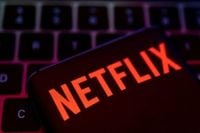Elon Musk, the billionaire entrepreneur and owner of X (formerly Twitter), has ignited a firestorm of controversy this week after publicly calling for a boycott of Netflix. His demand, which centers on the inclusion of a transgender character in a now-canceled Netflix series, has rapidly escalated into a high-profile debate about media representation, celebrity influence, and the economic consequences of online activism.
The controversy began on October 3, 2025, when Musk took to X to express his displeasure with Netflix’s programming choices. In a tweet that quickly went viral, Musk declared, “Boycott Netflix until they stop streaming shows with trans characters.” The timing of his post was notable: the show in question had already been canceled, but the inclusion of a transgender character had lingered as a point of contention among certain online communities. For Musk, however, the issue was not just about one series—it was about what he described as a broader trend in entertainment media.
Musk’s comments did not exist in a vacuum. In the days leading up to his tweet, the hashtag #CancelNetflix had been gaining traction on social media, fueled by allegations that some Netflix shows were pushing what critics called “woke” content, particularly targeting children. Musk, never one to shy away from controversy, amplified the movement by urging his 150 million followers to cancel their subscriptions. In another post, he wrote, “Cancel Netflix for the health of your kids.” According to TRT World, Musk accused the streaming giant of promoting “transgender propaganda” and sending “negative signals to children.”
The immediate fallout was dramatic. Within just over a day of Musk’s call to action, Netflix’s market capitalization plummeted by approximately $15 billion. According to data from stockanalysis.com cited by TRT World, Netflix shares fell by 4.3 percent to $1,140.50 as of 14:35 GMT on October 2, 2025. The company’s market cap dropped from around $498 billion on October 1 to $482.9 billion the next day. This marked the third consecutive day of losses for Netflix, underscoring the financial power that high-profile figures like Musk can wield when they mobilize their audiences.
Social media platforms were soon flooded with posts from users who claimed to have canceled their Netflix subscriptions in response to Musk’s campaign. Screenshots of cancellation confirmations proliferated, giving the impression—at least online—of a groundswell of support for Musk’s stance. The viral nature of the boycott campaign, combined with the financial hit to Netflix’s stock, quickly made headlines across major business and entertainment news outlets.
But the reaction was far from unanimous. While some praised Musk for “standing up for traditional values,” others condemned his statements as transphobic and harmful to the LGBTQ+ community. Critics argued that Musk’s rhetoric perpetuated negative stereotypes and could contribute to discrimination against transgender individuals. According to a recent YouGov poll, nearly 45 percent of respondents expressed concern that media representation of transgender individuals is often misrepresented—highlighting the complexities and sensitivities at play in this debate.
The show at the heart of the controversy was part of Netflix’s ongoing efforts to diversify its content and include underrepresented voices. According to a 2022 GLAAD Media Report, only 14 percent of LGBTQ+ characters in scripted television were transgender, despite the increasing visibility of trans individuals in society. This disparity has been a focal point for advocacy groups, who argue that authentic and sensitive representation in media is essential for fostering understanding and acceptance.
Netflix, for its part, has a track record of supporting LGBTQ+ representation. A 2022 study by GLAAD found that the platform consistently ranks among the first in promoting LGBTQ+ storylines and characters, with those representations steadily increasing over time. The company has not issued a formal response to Musk’s boycott call, but its programming choices and public commitments suggest that it views diverse storytelling as both a social responsibility and a business imperative.
Industry experts have weighed in on the broader implications of the controversy. Some analysts see Musk’s comments as emblematic of a growing backlash against progressive values in media, particularly as streaming platforms seek to expand their global audiences. Others warn that high-profile criticism from celebrities can have a chilling effect on content creators, who may become more hesitant to tackle challenging or controversial subjects.
“The power that celebrities like Musk have to shape public discourse is enormous,” said one media analyst quoted by BBC. “When someone with over 150 million followers calls for a boycott, companies have to pay attention—not just because of the immediate financial impact, but because of the message it sends to other creators and to marginalized communities.”
The incident has also reignited longstanding debates about the responsibilities of public figures in addressing social issues. According to a 2023 Pew Research Center survey, more than 60 percent of Americans believe that celebrities should use their platforms to advocate for social causes. Yet, as Musk’s campaign demonstrates, the outcomes of such advocacy can be unpredictable—and sometimes deeply divisive.
For LGBTQ+ advocates, the stakes are particularly high. Many worry that calls for boycotts, especially those targeting content with transgender representation, could discourage studios and streaming platforms from greenlighting similar projects in the future. “We need more, not less, representation,” said a spokesperson for GLAAD. “Authentic stories about transgender people help build empathy and understanding, and they reflect the real diversity of our world.”
Meanwhile, supporters of Musk’s position argue that parents should have more control over the content their children consume and that companies like Netflix should be more responsive to customer concerns about values and messaging. This tension—between creative freedom and consumer expectations—lies at the heart of the current debate and is unlikely to be resolved any time soon.
As the dust settles from this latest culture clash, the entertainment industry finds itself at a crossroads. The push for greater diversity and inclusion in media continues, but so too does the backlash from those who feel that such efforts go too far. For Netflix, the challenge will be to navigate these competing pressures while remaining true to its stated mission of telling stories that reflect the full spectrum of human experience.
In the end, the Musk-Netflix controversy is more than just a fleeting social media skirmish. It’s a window into the broader struggles over identity, representation, and influence that are shaping the future of entertainment—and, by extension, the culture at large.




